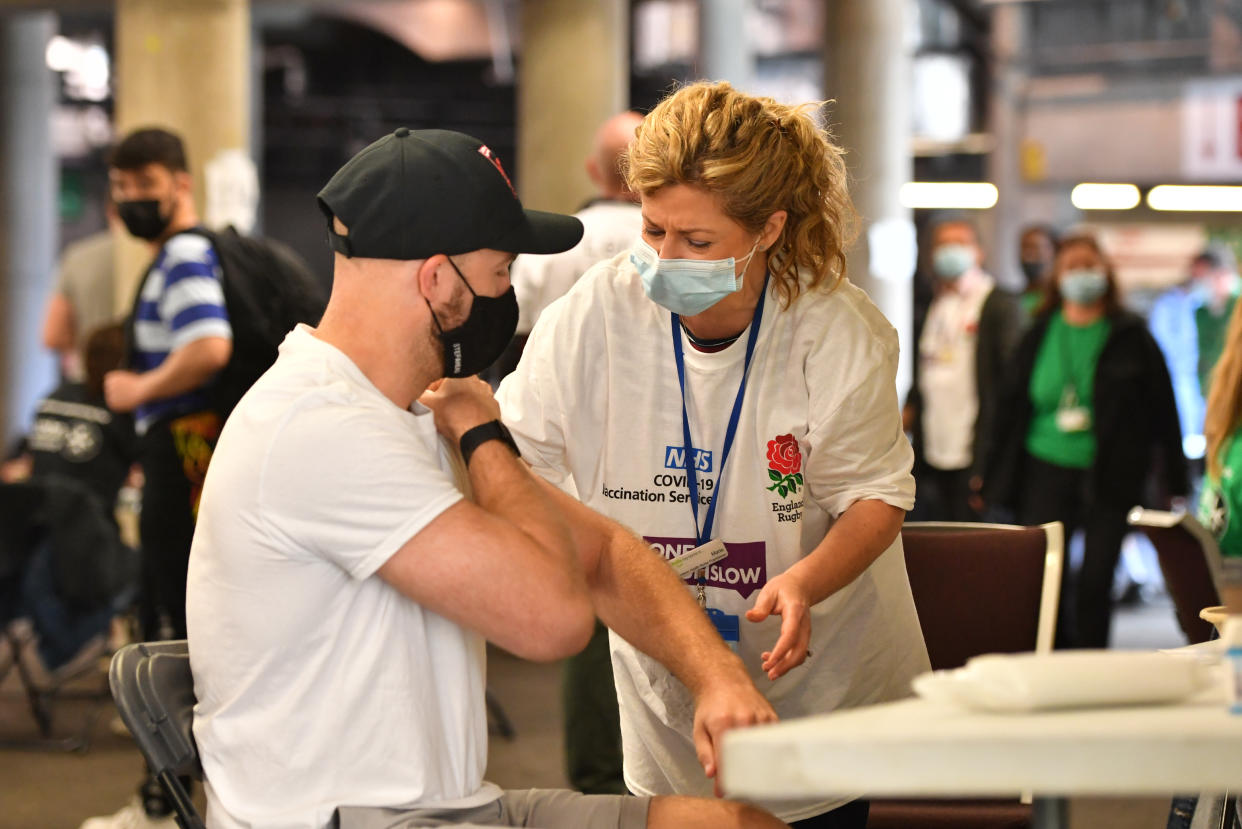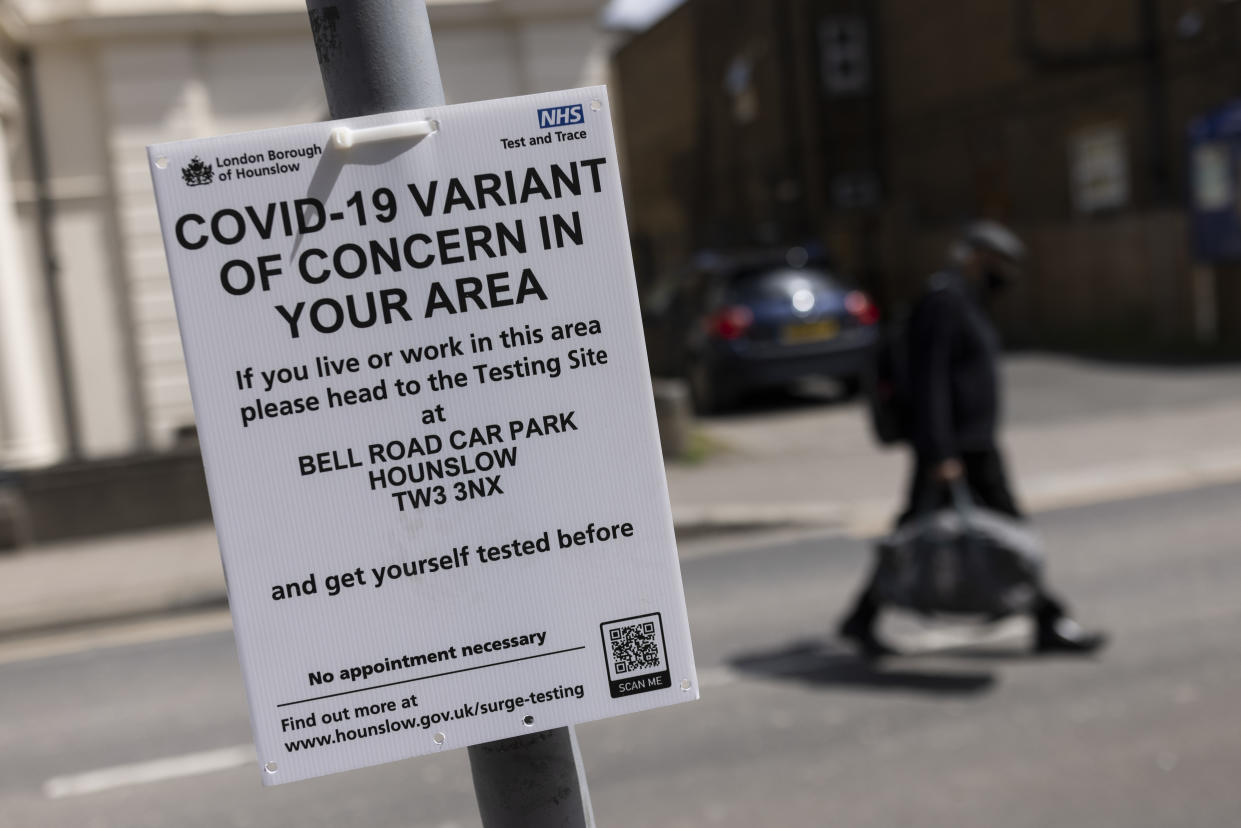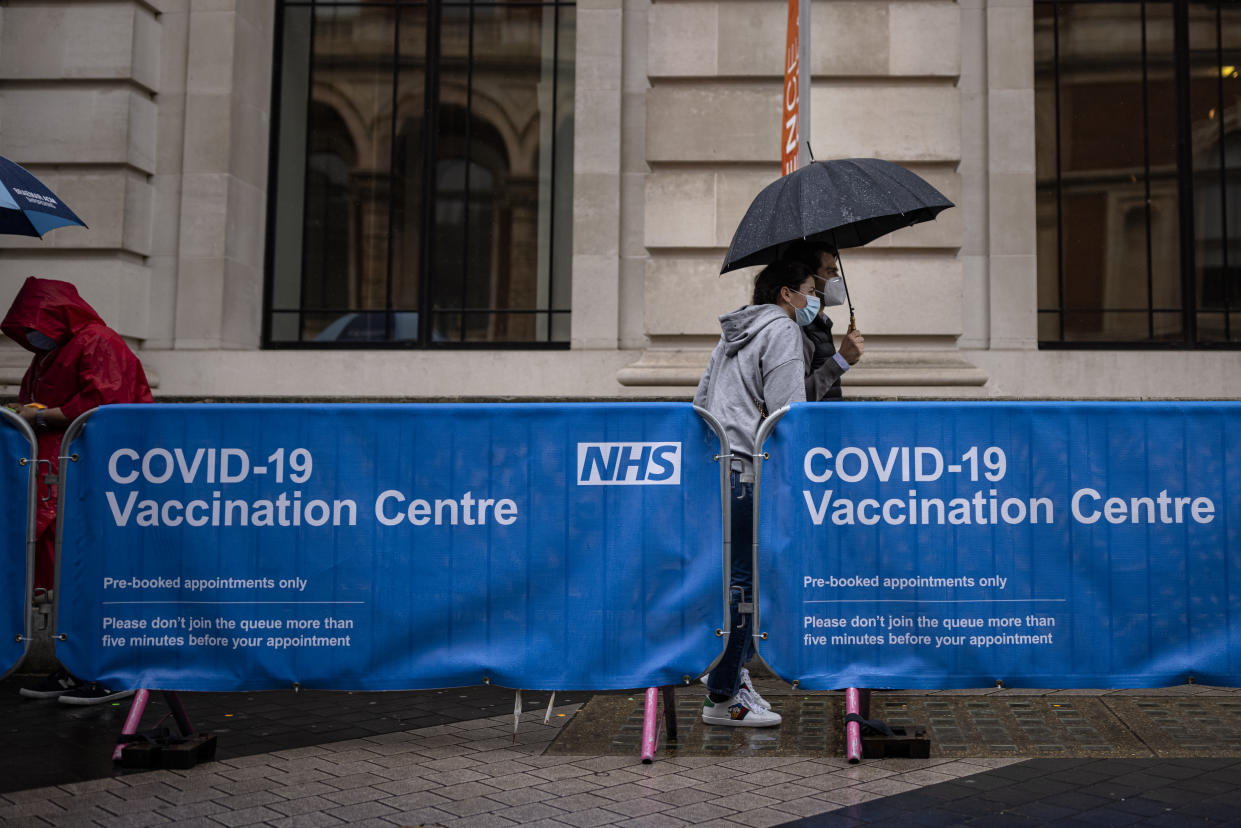Over 25s to be offered COVID vaccine 'next week' as second doses sped up

Over 25s will be offered first doses of the COVID-19 vaccine from next week, as the government looks to beat virus variants, according to reports.
The vaccine rollout in the UK will be accelerated, with people over 40 also set to receive their second dose within eight weeks of the first dose rather than 12, the Telegraph newspaper reported.
A source told the newspaper ministers are concerned about the Indian variant creating a surge of new cases and “want to double-dose as soon as possible”, which would mean over 40s could be fully vaccinated by 5 July.
Findings from Public Health England’s 3 June risk assessment suggested early data shows vaccines are less effective against the Indian variant - which has been renamed 'Delta' by the World Health Organization - compared to the Alpha (Kent) strain.
The PHE report came as research published in the Lancet by scientists at the Francis Crick Institute and the National Institute for Health Research added to evidence COVID jabs are somewhat less effective against the Delta than the Alpha variant, particularly after the first dose.

The speeding up of doses comes as reports suggest the 21 June “Freedom Day” may be significantly altered, with social distancing and face masks remaining in order to stop the spread of the Delta variant.
Number 10 is currently "drawing up other options" before deciding if they will lift all restrictions on that date, Sky News reported.
A government source said the final roadmap stage was still on schedule but they would study data before making any final decisions.
According to Professor Neil Ferguson, the Indian variant could be up to 100% more transmissible than the Kent version.
The epidemiologist said early data around the variant has placed the increased transmissibility anywhere between 30% and 100%, though the current best estimate is 60%.

Prof Ferguson, a member of the government's New and Emerging Respiratory Virus Threats Advisory Group (Nervtag), said the signs were "pointing in a more negative direction" and that caution is needed around any easing restrictions across the UK in the coming days.
A “Nepal variant”, which is a possible mutation of the Delta strain, is being closely tracked as well and was a factor in the decision to remove Portugal from the green travel list.
On Friday, Covid cases were the highest since march with 6,238 infections reported.
A Department of Health and Social Care spokesman said: ‘We are on track to offer a jab to all adults by the end of July and continue to follow the advice of the independent JCVI who recommend people in cohorts one to nine come forward for their second dose after eight weeks rather than 12, as they are at most risk of death and serious illness.’
Watch: What UK government COVID-19 support is available?



